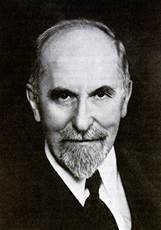Biography:Harold W. Percival
Harold W. Percival | |
|---|---|
 | |
| Born | April 15, 1868 Bridgetown, Barbados, British West Indies |
| Died | March 6, 1953 New York City, US |
| Occupation | Author |
| Language | English |
| Nationality | American |
| Notable works | Thinking and Destiny, Man and Woman and Child, Masonry and Its Symbols, Democracy Is Self-Government |
Harold Waldwin Percival (15 April 1868 - 6 March 1953) was a philosopher and writer, best known for Thinking and Destiny, in print since 1946. Between 1904 and 1917 he published The Word. In 1950 he founded The Word Foundation, Inc. to keep Thinking and Destiny and all of his other works in print.
Biography
Harold Waldwin Percival was born in Bridgetown, Barbados, British West Indies in 1868 to parents of English descent. When his father died his mother moved to the United States, eventually settling in New York City.
Even as a young boy, Harold Percival was a seeker of truth. He was convinced that there were "wise ones" who could answer his many questions and impart knowledge. As a young man, one of his first experiences on his quest for knowledge came in 1892 when he joined the Theosophical Society. He would later help to organize the Theosophical Society Independent of New York and for many years serve as its president while also writing and lecturing.
In 1893, and twice during the next 14 years, Percival had the unique experience of being "conscious of Consciousness," a potent spiritual and noetic enlightenment.[1] He stated that the value of that experience was that it enabled him to know about any subject by a process he called "real thinking." Because these experiences revealed to him more than was contained in Theosophy, he wanted to share this knowledge with humanity.
In 1902 Percival started to develop his own system. For over 30 years he worked on the manuscript that would lead to the writing of his magnum opus, Thinking and Destiny, now more than 65 years in print. He subsequently published three books expanding upon topics in the light of his system: Man and Woman and Child (1951), Masonry and Its Symbols (1952 ) and Democracy Is Self-Government (1952).
Between 1904 and 1917 Mr. Percival published The Word, a magazine with a worldwide circulation dedicated to the brotherhood of humanity. Percival's own articles earned him a place in Who's Who in America (1928–29).
In 1950, The Word Foundation, Inc., a non-profit organization, was established for the purpose of making known to the people of the world the writings of Harold W. Percival.
Influence
Percival’s works were noted as a major influence upon Richard Matheson, the famous science-fiction author. He said that his book The Path (1998) was based largely on Thinking and Destiny.[2]
In the book, The Bhagavad Gita: The Song of the Exalted Self, 1999, by Owen Slight, the author states that Harold W. Percival’s Thinking and Destiny, like the Bhagavad Gita, reveals relevant, instructive and long lasting lessons regarding the higher self and the human plight—long lost lessons of everlasting truth contained both in the Sanskrit Bhagavad Gita and Thinking and Destiny. Both books contain complete systems of knowledge. The plight of Arjuna is shown by Percival to be our own.[3]
Works
Books
- Thinking and Destiny[1]
- Man and Woman and Child[2]
- Democracy is Self-Government[3]
- Masonry and its Symbols[4]
Editorials
Percival wrote the following editorials for The Word between 1904 and 1917:
- "Adepts, Masters and Mahatmas"[5]
- "Atmospheres"[6]
- "Birth-Death—Death-Birth"[7]
- "Breath"[8]
- "Brotherhood"[9]
- "Christ"[10]
- "Christmas Light"[11]
- "Consciousness"[12]
- "Consciousness Through Knowledge"[13]
- "Cycles"[14]
- "Desire"[15]
- "Doubt"[16]
- "Flying"[17]
- "Food"[18]
- "Form"[19]
- "Friendship"[20]
- "Glamour"[21]
- "Ghosts"[22]
- "Heaven"[23]
- "Hell"[24]
- "Hope & Fear"[25]
- "Imagination"[26]
- "Individuality"[27]
- "I In the Senses"[28]
- "Intoxications"[29]
- "Karma"[30]
- "Life"[31]
- "Living / Living Forever"[32]
- "Mirrors"[33]
- "Motion"[34]
- "Our Message"[35]
- "Personality"[36]
- "Psychic Tendencies and Development"[37]
- "Sex"[38]
- "Shadows"[39]
- "Sleep"[40]
- "Soul"[41]
- "Substance"[42]
- "Thought"[43]
- "Veil of Isis, The"[44]
- "Will"[45]
- "Wishing"[46]
- "Zodiac, The"[47]
References
- ↑ Gale Encyclopedia of Occultism & Parapsychology, Fifth Edition, Volume 2 Edited by J. Gordon Melton Page 1196 Gale Group 27500 Drake Rd. Farmington Hills, MI 48331 ISBN:0810394898 (Volume 2)
- ↑ Matheson, Richard (1998). The Path: Metaphysics for the 90’s. The Word Foundation, Inc. ISBN:091165013X
- ↑ Slight, Owen, The Bhagavad Gita: The Song of the Exalted Self, Owen Slight Publisher, 1999 ISBN:064635602X, 9780646356020
Sources
- Melton, J. Gordon (ed.) (2001), Gale Encyclopedia of Occultism & Parapsychology, Fifth Edition, Volume 2, Gale Group, ISBN 0810394898
External links
- The Word Foundation
- Introduction to Thinking and Destiny at YouTube
- On being conscious of Consciousness at YouTube
- Early magazines at Harvard Library

